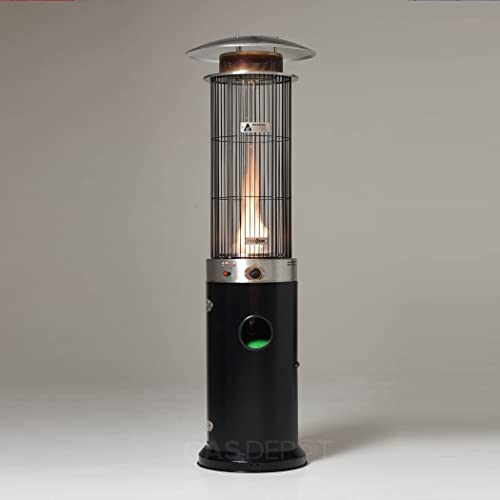Understanding Heating Appliances: Types, Benefits, and Considerations
As the temperature begins to drop, numerous homes look for ways to keep their homes warm and comfy. Heating appliances play an essential function in supplying warmth throughout the chilly months. Outdoor Ambiance intends to supply a thorough introduction of various heating appliances, their advantages, and what factors to consider to remember when choosing the best one for your home.
Kinds Of Heating Appliances
Heating appliances been available in various types, each created to fulfill specific heating requirements. Below is an extensive list of typical heating appliances:
1. Central Heating Systems
- Heating systems: Utilize fuel such as gas, oil, or electrical power to heat air and disperse it throughout the home by means of ductwork.
- Boilers: Heat water to produce steam or warm water, which is then flowed through radiators or underfloor heater.
- Heat Pumps: Transfer heat from the outside air or ground to warm the home, efficient in moderate climates.
2. Space Heaters
- Electric Heaters: Portable systems that operate on electrical power, appropriate for heating small locations.
- Gas Heaters: Use natural gas for heating, frequently found in homes lacking main heating.
- Infrared Heaters: Emit infrared radiation which directly warms people and objects in a room rather than the air.
3. Wood and Pellet Stoves
- Wood Stoves: Burn logs or other strong fuel sources and can be utilized as standalone heating solutions.
- Pellet Stoves: Burn compressed wood pellets and are known for their performance and environmentally friendly nature.
4. Radiant Heat Systems
- Underfloor Heating: A form of heating where heat is discharged from the flooring, supplying an even, comfy temperature.
- Radiant Panels: Installed on walls or ceilings, radiating heat straight to the occupants.
5. Fireplaces
- Conventional Fireplaces: Burn wood or coal and can supply climatic heat but are less efficient than modern heater.
- Gas Fireplaces: Provide the feel and look of a traditional fireplace with the convenience of gas heating.
Introduction Table of Heating Appliances
| Appliance Type | Energy Source | Heating Method | Typical Use |
|---|---|---|---|
| Central Heating Systems | Gas, Oil, Electricity | Air or Water Distribution | Whole House |
| Space Heaters | Electrical power, Gas | Direct Heating | Individual Rooms |
| Wood Stoves | Solid Fuel | Combustion Heating | Partial/Home Heating |
| Pellet Stoves | Biomass | Combustion Heating | Partial/Home Heating |
| Radiant heat | Electrical Power, Hot Water | Radiation/Convection | Individual Rooms |
| Conventional Fireplaces | Wood or Gas | Combustion Heating | Atmosphere and Heat |
Advantages of Heating Appliances
Heating appliances use many benefits that contribute to home comfort, safety, and energy efficiency. Some crucial benefits consist of:
- Comfort: The main function of heating appliances is to manage temperature, offering a warm, comfy environment.
- Energy Efficiency: Modern appliances frequently include energy-efficient functions, helping homeowners minimize energy bills.
- Variety: With lots of options readily available, house owners can pick appliances that fit their requirements, living space, and budget plan.
- Control: Many heater come with programmable thermostats, permitting for better temperature level control and schedules.
- Eco-Friendly Options: Some heating appliances, such as heat pumps and pellet stoves, offer ecologically friendly heating solutions.
Factors To Consider for Selecting Heating Appliances
When selecting a heating home appliance, there are several factors house owners must assess:
- Size of Space: The type and size of the heating device ought to match the area being heated up.
- Energy Source: The schedule and expense of the energy source can affect decision-making; for instance, gas might be more available and cost-effective in some areas than electrical energy.
- Efficiency Ratings: Look for appliances with high efficiency rankings to minimize energy intake and decrease costs.
- Installation Requirements: Some systems may require expert installation, so it's vital to consider these expenses.
- Upkeep Needs: Different appliances come with differing maintenance requirements, which can impact long-term costs and benefit.
Often Asked Questions (FAQs)
1. What is the most energy-efficient heating device?
- Heatpump are often thought about to be one of the most energy-efficient heating appliances, particularly in moderate environments.
2. How frequently should heating appliances be kept?
- Regular upkeep, a minimum of when a year, is suggested for heating appliances to guarantee they operate securely and efficiently.
3. Are space heaters safe to use overnight?
- Space heaters can be safe for over night use if they are geared up with security features such as automatic shut-off and are positioned on stable surface areas away from flammable products.
4. Is it possible to heat up a whole home with space heaters?
- While space heaters can offer extra heat, they are normally not designed to warm an entire home effectively and efficiently by themselves.
5. What are the advantages of underfloor heating?
- Underfloor heating supplies consistent heat distribution, lowered energy consumption, and eliminates cold spots-- guaranteeing comfort in living spaces.
As the winter approaches, picking the ideal heating device is essential to make sure convenience and performance in the home. With Modern Patio Heaters offered, house owners must consider the distinct demands of their space while keeping energy performance and upkeep elements in mind. By comprehending the different types of heating appliances, their benefits, and the factors to consider needed when selecting one, homeowners can maintain a comfortable environment throughout the chillier months.

